A delegation from the Polytechnic University of Turin, led by Vice Rector Professor Alberto Giuseppe Sapora, visited Tongji University on May 7. Executive Vice President LYU Peiming met with the delegation. Representatives from the Graduate School, the National College of Elite Engineers, the Office of Research Administration, the Foreign Affairs Office, the College of Electronic and Information Engineering, the College of Design and Innovation, the College of Architecture and Urban Planning, the UNEP–Tongji Institute of Environment for Sustainable Development, and the Sino-Italian Campus also attended the meeting.
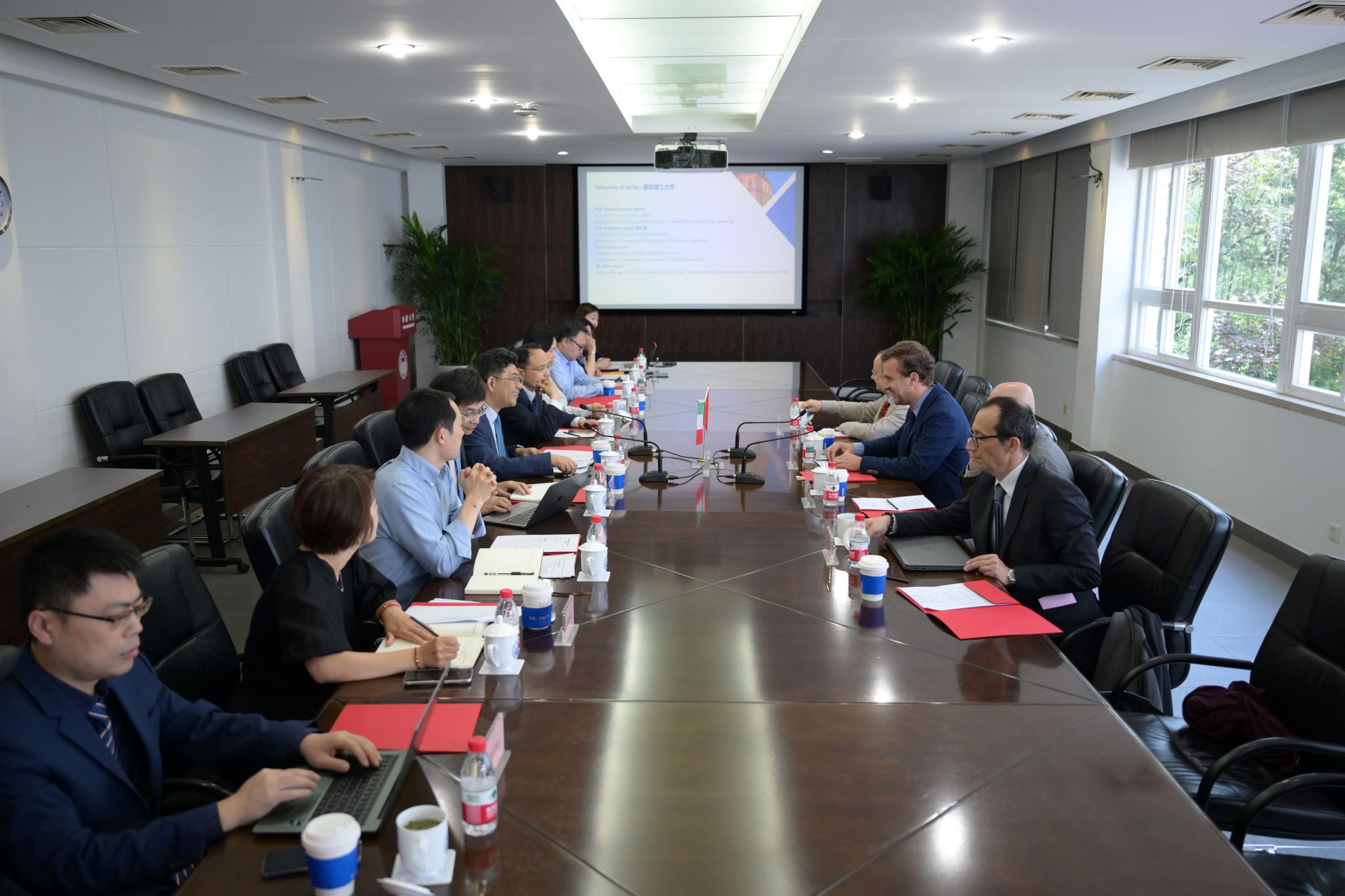
LYU Peiming noted that the Polytechnic University of Turin is one of Tongji University’s most important strategic partners. Over the past year, the two universities have engaged in in-depth collaboration on the establishment of a joint education institute and the development of shared research platforms. He expressed hope that a long-term cooperation mechanism would be established, leveraging the planned Sino-Italian College of Engineering and Innovation(SICEI)as a bridge to strengthen faculty and student exchanges, deepen cooperation in cutting-edge research fields, and jointly contribute to China–Italy cooperation in education and science and technology.
Professor Sapora emphasized that the Polytechnic University of Turin values its longstanding partnership with Tongji University and expressed interest in further exploring cooperation in academic exchanges, international collaborative research, excellence in engineering education, and joint doctoral training. As the year 2025 will mark the 20th anniversary of the Politong double-degree program at the undergraduate and master’s levels, he proposed launching a series of high-impact academic events to celebrate this milestone and take it as a springboard for advancing bilateral innovation cooperation.
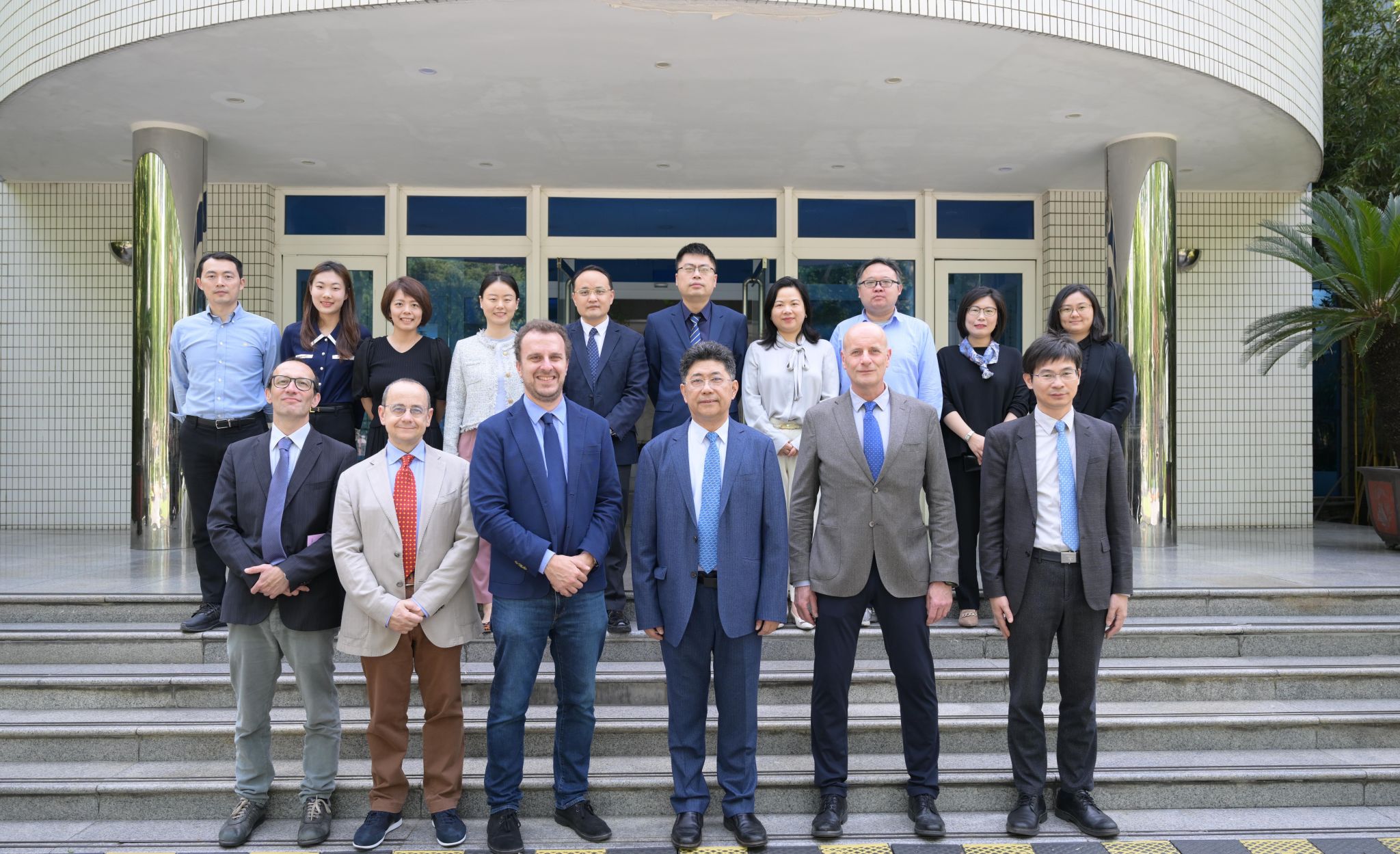
During the meeting, the Graduate School presented plans for the high-quality development of the Sino-Italian College of Engineering and Innovation(SICEI). The future institute will focus on interdisciplinary frontiers such as “AI+” and sustainable development, supported by a robust academic exchange mechanism, including faculty seminars, to enhance graduate education. The National College of Elite Engineers introduced Tongji’s model for cultivating internationally competitive engineers, suggesting further collaboration in key areas such as university–industry joint training and dual-supervisor systems. The Office of Research Administration briefed participants on joint research funding opportunities. Representatives from both sides also engaged in in-depth discussions on disciplinary development, joint research, and the construction of summer research bases, exchanging best practices and achievements in relevant fields.
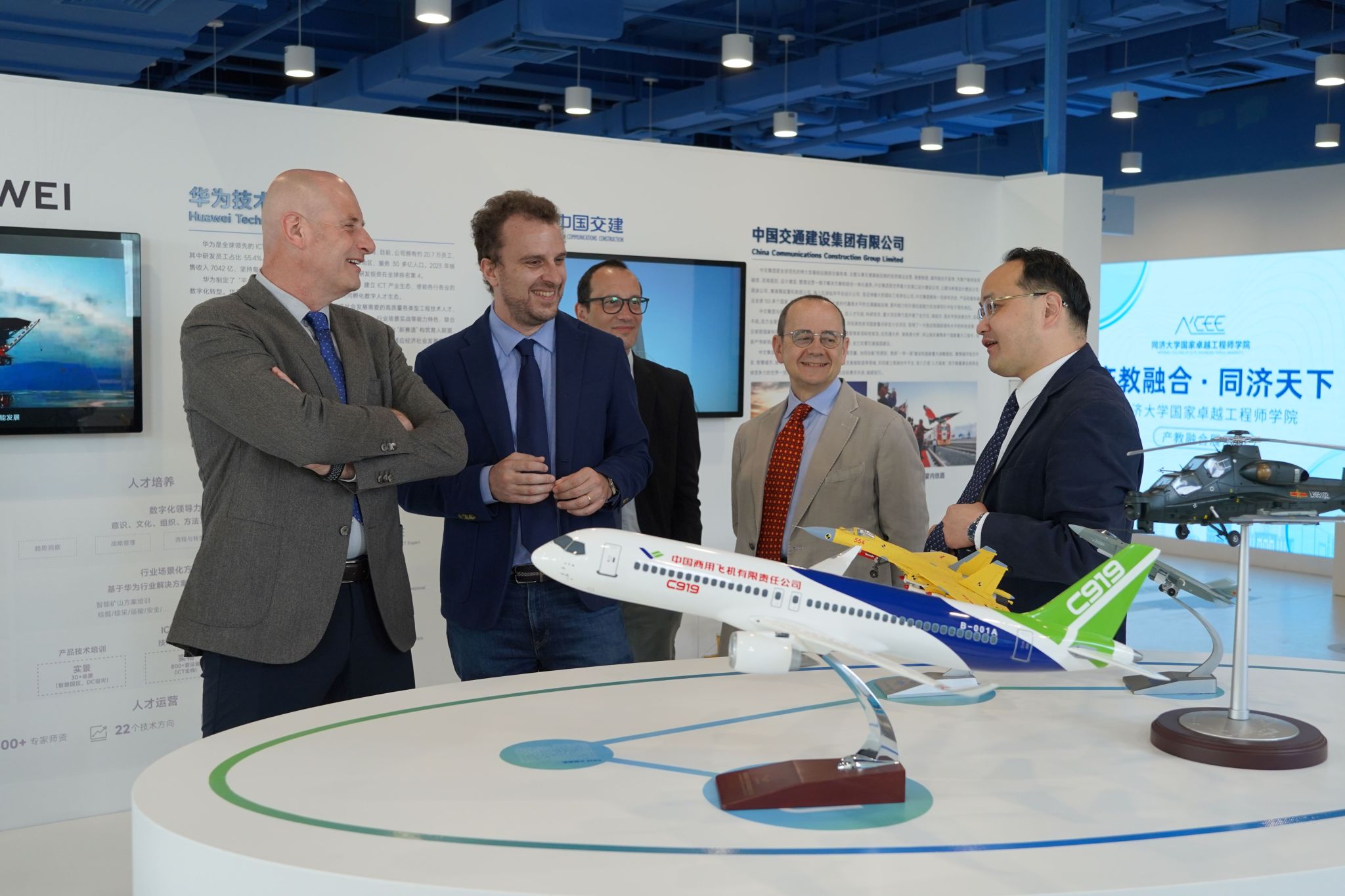
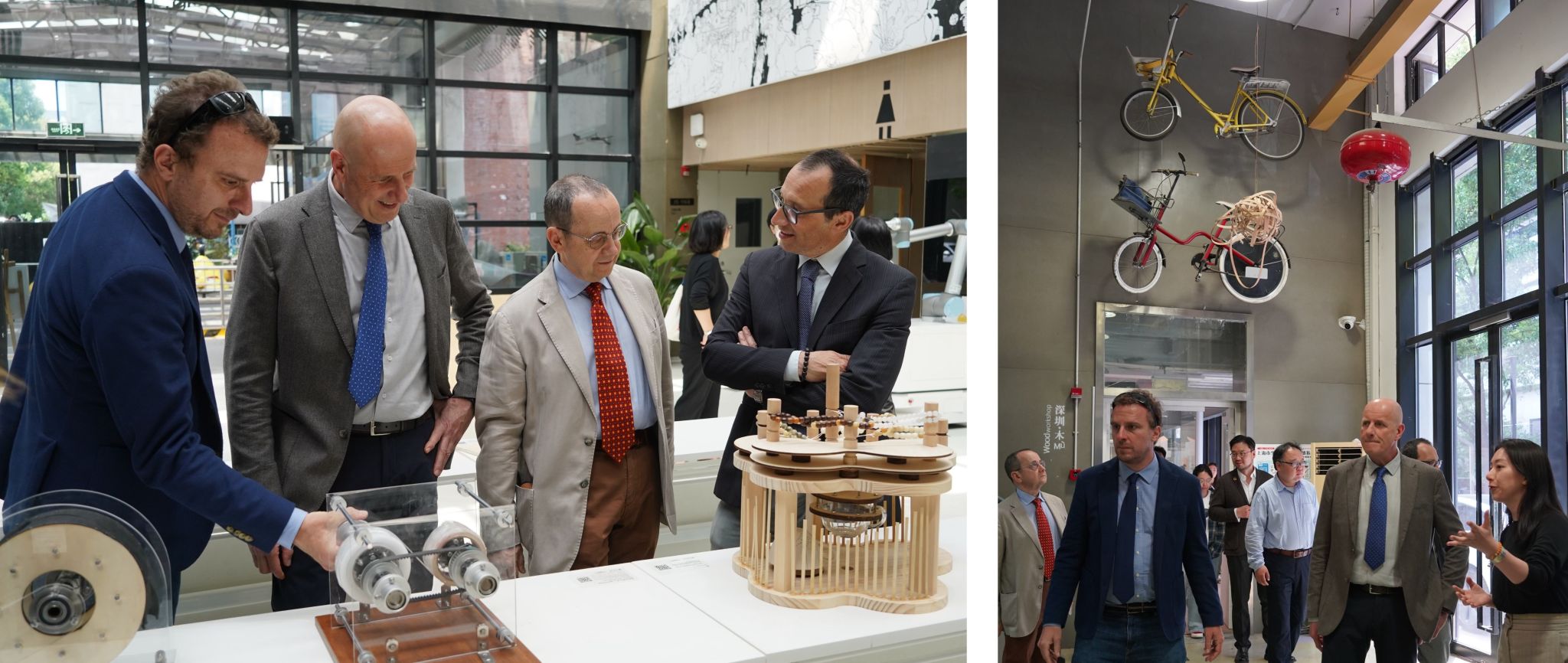
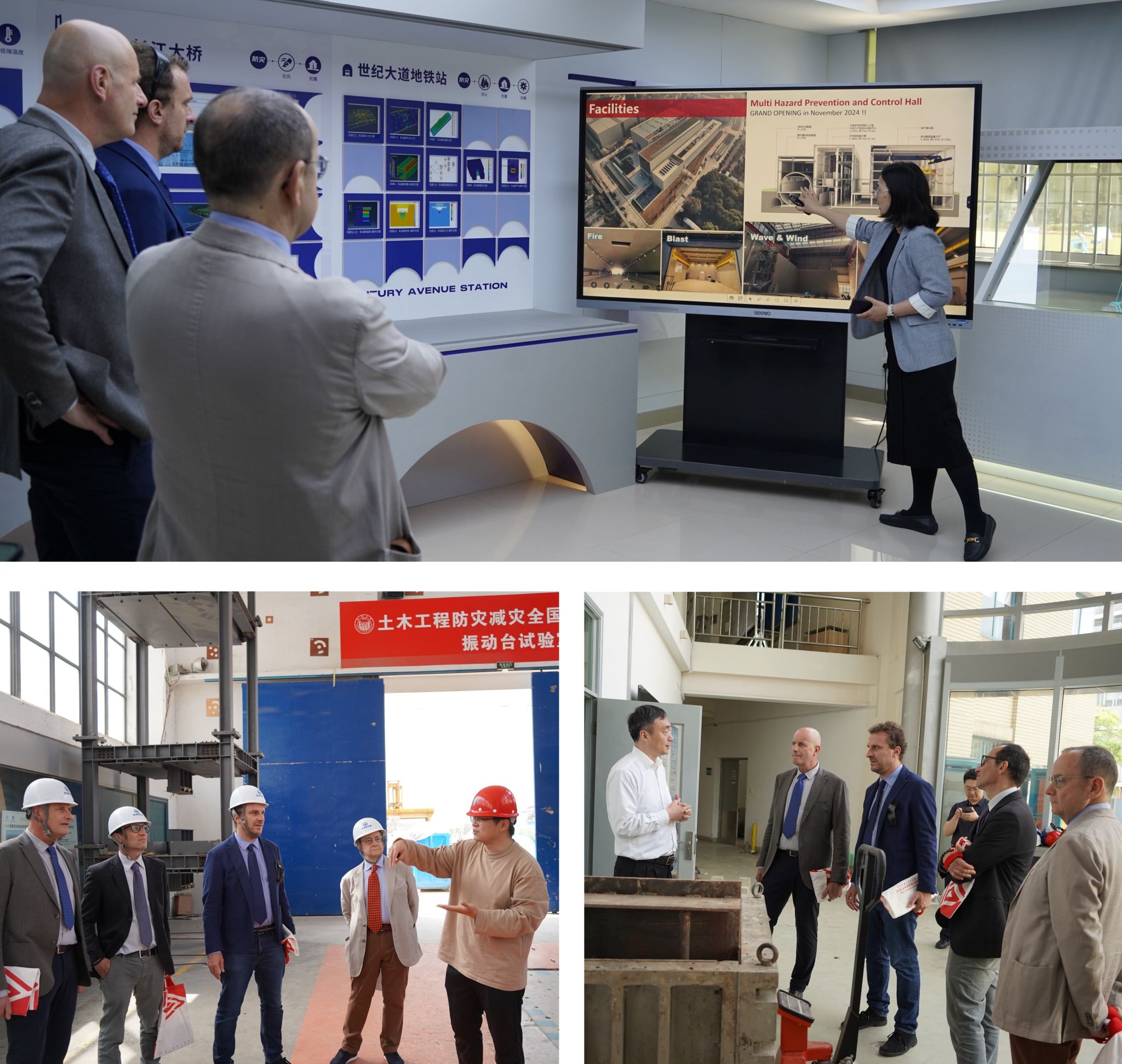
The delegation also toured the university’s Smart Campus Decision-Making Cockpit, visited the National College of Elite Engineers, the College of Design and Innovation, and the College of Civil Engineering, and discussed further with faculty members on expanding cooperation in related areas.
The Polytechnic University of Turin, the first technical university in Italy, is widely recognized for its achievements in interdisciplinary talent cultivation, scientific research, sustainable campus development, university–industry integration, and technology transfer. Since signing the first inter-university cooperation agreement in 2005, Tongji University and the Polytechnic University of Turin have closely collaborated through the Politong double-degree program launched in 2006. Their cooperation spans multiple disciplines, including electronic and information engineering, mechanical and energy engineering, design, civil engineering, automotive engineering, and marine and earth sciences. In 2023, the two institutions jointly initiated the establishment of the Sino-Italian College of Engineering and Innovation(SICEI). In 2024, they signed agreements to develop interdisciplinary joint research centers and joint PhD programs.
-
Italian Research Day & China-Italy Forum on Sustainable Mobility Held at Tongji University
2025-06-16 -
" Polimi Day at Tongji " Series of Events Held at Tongji
2025-06-12 -
Vice Rector of Polytechnic University of Turin Visits Tongji University to Deepen Bilateral Cooperation
2025-05-15 -
Showcasing the Spirit of International Volunteers: Italian Students from Tongji University at the F1 Chinese Grand Prix 2025
2025-03-25 -
Event | The Italian Career Day and Job Fair at Tongji
2024-12-07










 Links :
Links :
 021-65983721
021-65983721

